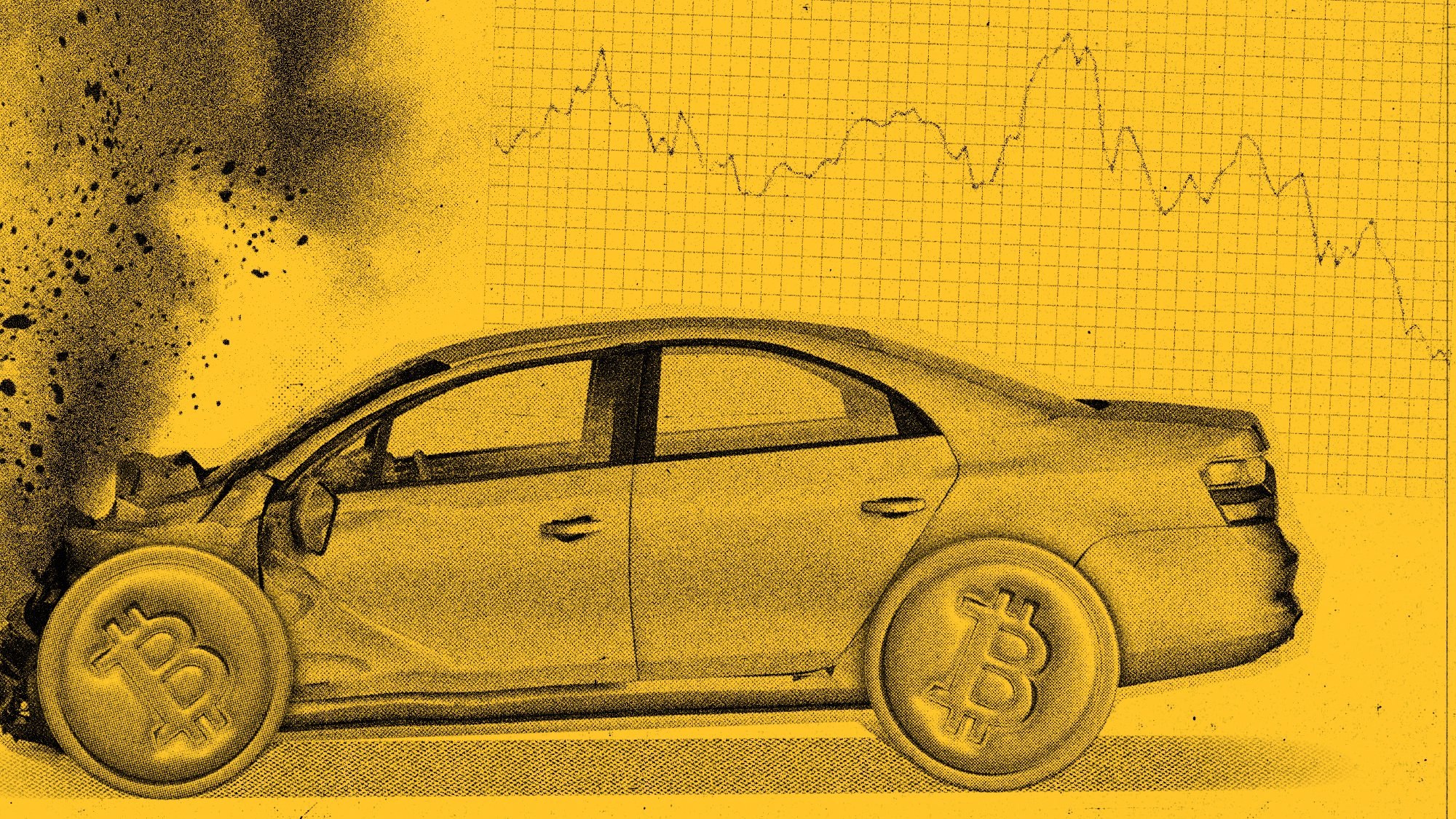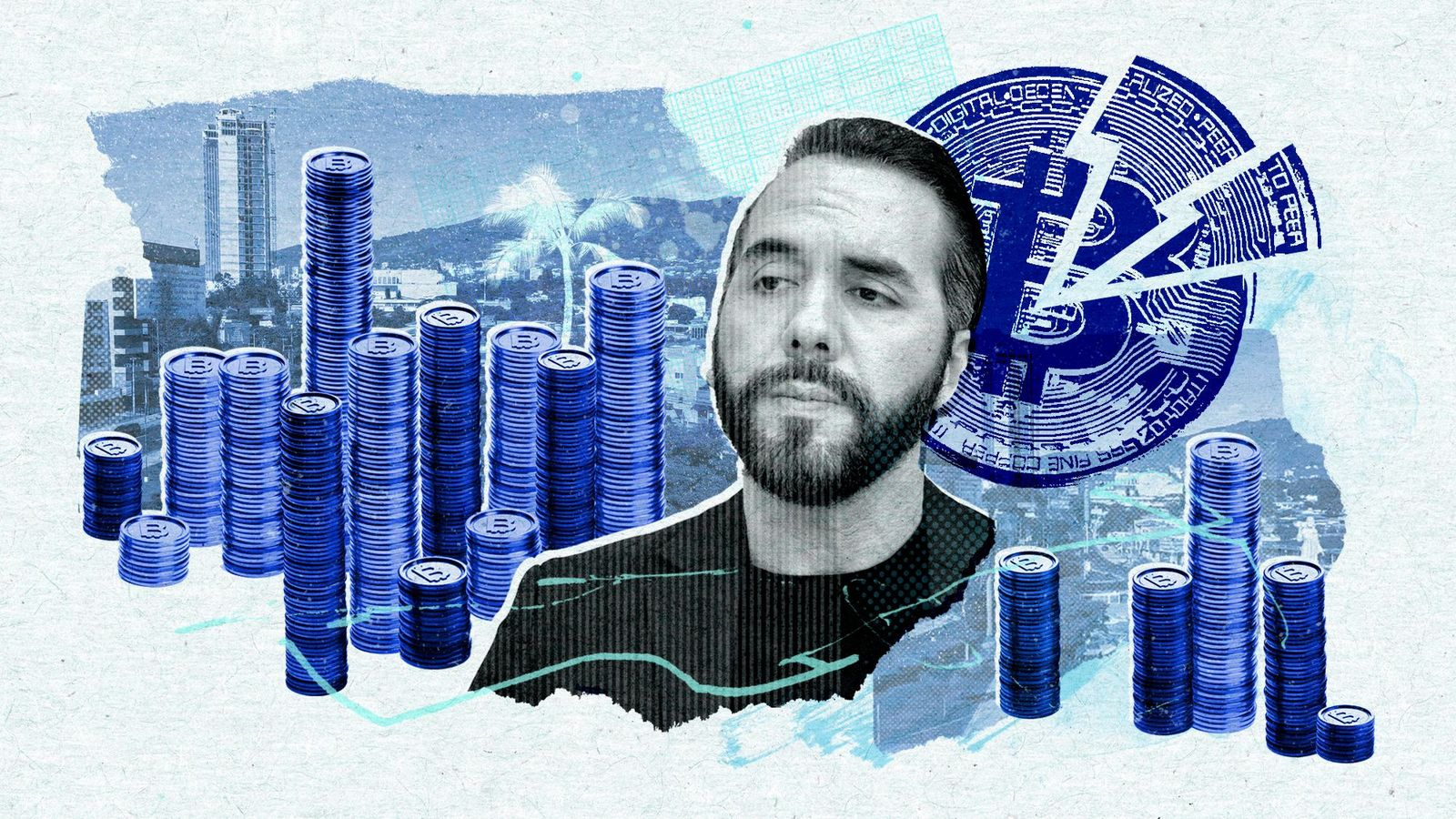Crypto: A sell-off hits digital currencies
Is this the end of cryptocurrency?

A free daily email with the biggest news stories of the day – and the best features from TheWeek.com
You are now subscribed
Your newsletter sign-up was successful
The smartest insight and analysis, from all perspectives, rounded up from around the web:
The collapse of the cryptocurrency market is testing the faith of those who drank the Kool-Aid, said Katie Martin in the Financial Times. "A trickle in the price of Bitcoin from its peak of $68,000 turned into a flood" last week "in part because of cracks in the so-called stablecoins that glue the market together." Stablecoins, which are generally pegged to the dollar, let digital currency investors move in and out of currencies like Bitcoin without converting their investments into cash. They can also be lent out, often at high rates of interest. A run on these tokens has cast a much wider chill on the crypto market, including Bitcoin, which fell as low as $27,000. Investors were "lured in by claims that these lines of code could become serious rivals to the dollar and the basis of a new financial utopia." Now investors large and small have gotten a serious reality check. Hedge fund manager and crypto evangelist Michael Novogratz has lost $6 billion of his $8.5 billion fortune since November, while New York City Mayor Eric Adams, who converted his first three City Hall paychecks into Bitcoin and Ethereum, would have lost about $5,800 of his pay.
The trigger was a stablecoin that suddenly became very unstable, said Alexander Osipovich and Caitlin Ostroff in The Wall Street Journal. Unlike stablecoins that are backed by stores of dollars, an experimental stablecoin, TerraUSD, took "a more complex approach that relies on financial engineering to maintain its link to the dollar." Once touted as a stroke of financial wizardry that "could ultimately supplant the dollar itself," Terra lost its anchoring last week in a panicked sell-off. Crypto enthusiasts love to "throw around alleged millions and billions," but those numbers are "fictions built on fictions," said David Gerard in Foreign Policy. The trouble with stablecoins, obscure as they may be to outsiders, is a sign of broader vulnerability; they are like "the money-market funds that played such a critical part in the 2008 crash." There's "plenty of pain" in the crypto world now, but "the real danger is contagion from cryptocurrency to the wider economy."
The Week
Escape your echo chamber. Get the facts behind the news, plus analysis from multiple perspectives.

Sign up for The Week's Free Newsletters
From our morning news briefing to a weekly Good News Newsletter, get the best of The Week delivered directly to your inbox.
From our morning news briefing to a weekly Good News Newsletter, get the best of The Week delivered directly to your inbox.
If regulators don't act now, this could end in disaster, said Bloomberg in an editorial. Despite the efforts to rename stadiums and run Super Bowl ads featuring celebrity endorsers, "this stuff isn't ready for prime time." The technology "hasn't found much practical use" as an alternative currency, an inflation hedge, or a new asset class. President Biden has laid out a sensible framework for regulation that lawmakers should act on so that the next boom-and-bust cycle doesn't trigger a bigger financial crash.
Have we reached the bottom yet? asked Andy Kessler in The Wall Street Journal. "It's certainly less bubblicious out there," but we haven't witnessed capitulation from the diehards who are still, in Reddit parlance, HODLing, "holding on for dear life," as crypto collapses — along with the speculative stocks, from DraftKings to Carvana, that found favor in the latest boom. In these kinds of meltdowns, the path is "rarely straight down." There will be survivors here. But not everyone. "From the dot-com demise, Pets.com and eToys.com are both still very much dead."
This article was first published in the latest issue of The Week magazine. If you want to read more like it, you can try six risk-free issues of the magazine here.
A free daily email with the biggest news stories of the day – and the best features from TheWeek.com
-
 Local elections 2026: where are they and who is expected to win?
Local elections 2026: where are they and who is expected to win?The Explainer Labour is braced for heavy losses and U-turn on postponing some council elections hasn’t helped the party’s prospects
-
 6 of the world’s most accessible destinations
6 of the world’s most accessible destinationsThe Week Recommends Experience all of Berlin, Singapore and Sydney
-
 How the FCC’s ‘equal time’ rule works
How the FCC’s ‘equal time’ rule worksIn the Spotlight The law is at the heart of the Colbert-CBS conflict
-
 Why is crypto crashing?
Why is crypto crashing?Today's Big Question The sector has lost $1 trillion in value in a few weeks
-
 What are stablecoins, and why is the government so interested in them?
What are stablecoins, and why is the government so interested in them?The Explainer With the government backing calls for the regulation of certain cryptocurrencies, are stablecoins the future?
-
 The collapse of El Salvador's bitcoin dream
The collapse of El Salvador's bitcoin dreamUnder the Radar Central American nation rolls back its controversial, world-first cryptocurrency laws
-
 Bitcoin surges above $100k in post-election rally
Bitcoin surges above $100k in post-election rallySpeed Read Investors are betting that the incoming Trump administration will embrace crypto
-
 Donald Trump's bitcoin obsession
Donald Trump's bitcoin obsessionThe Explainer Former president's crypto conversion a 'classic Trumpian transactional relationship', partly driven by ego-boosting NFTs
-
 Is bitcoin back?
Is bitcoin back?Talking Point World's most popular cryptocurrency looks set to hit record highs in 2024 but is 'not for the faint-hearted', experts say
-
 The truth about who founded bitcoin
The truth about who founded bitcoinunder the radar Satoshi Nakamoto's true identity is one of tech's biggest mysteries
-
 Bankman-Fried: A con artist's day of reckoning
Bankman-Fried: A con artist's day of reckoningFeature How the crypto king's downfall might actually begin to restore trust in the crypto market